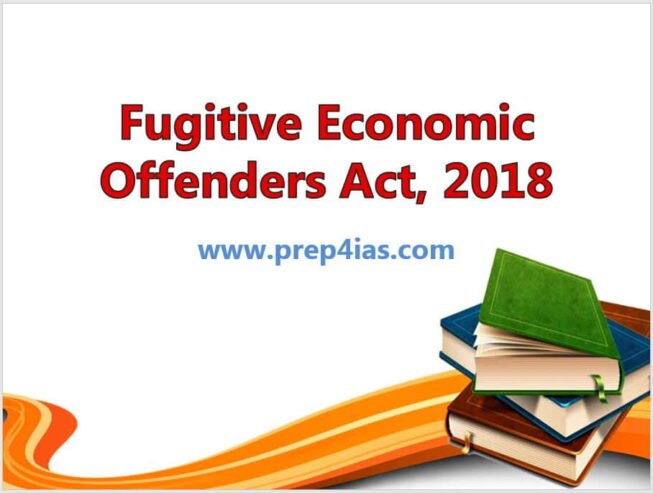In this article, we will look into the important points related to Fugitive Economic Offenders Act, 2018. The FEO Bill was first Introduced on 12th March, 2018. It was then first passed by Lok Sabha on July 19th, 2018 and then subsequently by Rajya Sabha on July 25th, 2018.
Why Do we need this Act
In last few years, it has been observed that Offenders does the Bank and Financial Frauds in the Country and then flee away to avoid the Prosecution. This has now become very frequent with the recent Cases of Vijay Mallya, Nirav Modi and Mehul Choksi. All of them did a Large Scale Bank Fraud and then fled away from the Country. Government then tried to brought them to Justice by Introducing Fugitive Economic Offenders Act, 2018.

Fugitive Economic Offenders Act, 2018
The Fugitive Economic Offenders Act, 2018 empowers any Special Court (setup under Prevention of Money Laundering Act, 2002) to confiscate all the Economic Offender Properties and Assets wherever it is who are indulged in the Offences of over Rs 100 Crores and are currently evading the prosecution by remaining outside the country.
What is FEO
FEO is also known as Fugitive Economic Offender. It is a person against whom arrest warrant has been issued for committing an offence of value atleast Rs100 Crores as listed in FEO Act, 2018.
How to Declare an Individual Fugitive Economic Offender(FEO)
- An application must be filed in the Special Court asking that a particular individual may be declared a Fugitive Economic Offender.
- The application must be accompanied by "reasons for the belief" that an Individual is a Fugitive Economic Offender.
- The Special Court may then issue notice to the Individual to appear at a specified place, and drop the proceedings if the individual complies.
What is PMLA
PMLA is known Prevention of Money Laundering Act, 2002. It is an act of Government of India introduced in 2002 to prevent the Money Laundering and to provide for confiscation of property derived from Money Laundering. More on PMLA, 2002.
Other Economic Offences Laws
- The Prevention of Money Laundering Act, 2002
- The Benami Properties Transactions Act, 1988
- The Companies Act, 2013
- Indian Penal Code, 1860
- Prevention of Corruption Act, 1988
- SARFAESI(The Securitisation and Reconstruction of Financial Assets and Enforcement of Securities Interest) Act, 2002
Which of the Government Agencies Deals with Economic Offences
- Central Bureau of Investigation(CBI): It is a Central Investigation Agency setup under Delhi Special Police Establishment Act, 1946 to investigate in all types of Crime committed within the Country.
- Enforcement Directorate(ED): It is a law enforcement Agency established under the Department of Economic Affairs in 1956 as an 'Enforcement Unit'.
- Security and Exchange Board of India(SEBI): It is Statutory body established on 12th April, 2002 in accordance with the provisions of the Security and Exchange Board of India Act, 1992.
Relevant Sections Which Can be Invoked by Government Agencies
- Enforcement Directorate(ED) can invoke Section 3 for offence of Money Laundering and Section 4 for Punishment for Money Laundering under Prevention of Money Laundering Act, 2002.
- Central Bureau of Investigation(CBI) can invoke Section 120B for Criminal Conspiracy and Section 420 for Cheating under Indian Penal Code, 1860. They can also charge under Section 13(1) and Section 13(2) of Prevention of Corruption Act, 1988 which deals with Criminal Misconduct by a Public Servant.
- Security and Exchange Board of India can ban the offender from Stock Market.
How Can Government Bring the Offenders to Justice
The Government of India has a legislation that governs the extradition of a fugitive from India to a foreign country, or vice versa, is The Extradition Act 1962 (the Extradition Act). Government has signed extradition treaties with 43 Foreign countries to bring back the Fugitives to face Justice. In case, no extradition treaty exists with a specific foreign country, then in that case government may issue the notification based on International Convention under which India and other Foreign countries are parties with respect to offences specified in that Convention.

